Apply
now
now
Internet of Things (elective)
level of course unit
second cycle, MasterLearning outcomes of course unit
The students:
- know basic IOT architectures.
- know methods of data generation.
- know the basics of data transmission.
- know the options of data storage.
- know the forms of data visualization.
- understand challenges of data security.
- know basic IOT architectures.
- know methods of data generation.
- know the basics of data transmission.
- know the options of data storage.
- know the forms of data visualization.
- understand challenges of data security.
prerequisites and co-requisites
none
course contents
Introduction
- IoT architecture (e.g. reference models)
- Requirements for IOT systems
- IOT data transmission protocols
- Use of IOT in an industrial context (examples)
- Basics of sensor technology
- Basics of embedded systems
Implementation
- Procedure for implementing IOT
- Prototypical implementation of IOT
- Selection of sensors
- Data collection, visualization and evaluation
- Challenges in implementation
- IoT architecture (e.g. reference models)
- Requirements for IOT systems
- IOT data transmission protocols
- Use of IOT in an industrial context (examples)
- Basics of sensor technology
- Basics of embedded systems
Implementation
- Procedure for implementing IOT
- Prototypical implementation of IOT
- Selection of sensors
- Data collection, visualization and evaluation
- Challenges in implementation
recommended or required reading
Perry L.; Internet of Things for Architects: Architecting IoT solutions by implementing sensors, communication infrastructure, edge computing, analytics, and security; Birmingham; 2018
Sinclair B.; IoT Inc: How Your Company Can Use the Internet of Things to Win in the Outcome Economy; 2017
Thomas O., Nüttgens M., Fellmann M. (Herausgeber); Smart Service Engineering: Konzepte und Anwendungsszenarien für die digitale Transformation; Wiesbaden; 2017
Sinclair B.; IoT Inc: How Your Company Can Use the Internet of Things to Win in the Outcome Economy; 2017
Thomas O., Nüttgens M., Fellmann M. (Herausgeber); Smart Service Engineering: Konzepte und Anwendungsszenarien für die digitale Transformation; Wiesbaden; 2017
assessment methods and criteria
Written exam or seminar thesis
language of instruction
Germannumber of ECTS credits allocated
4eLearning quota in percent
15course-hours-per-week (chw)
2planned learning activities and teaching methods
Lecture, individual work with software, group work, presentation and discussion of tasks






